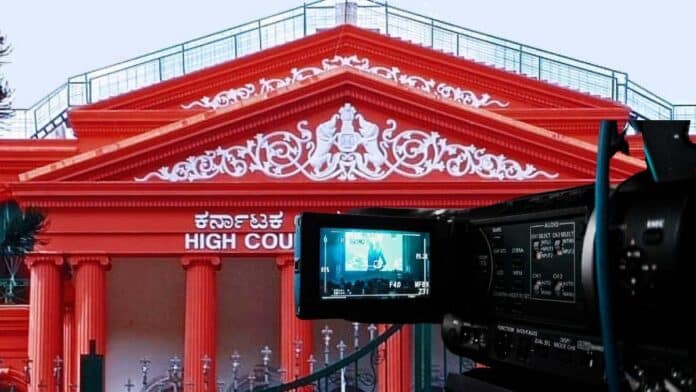In response to viral clips from its YouTube channel, the Karnataka High Court introduced a stern warning against unauthorized recording and sharing of its proceedings. The court displayed a cautionary message on its YouTube channel on Friday, stating restrictions before the commencement of live streaming in various courtrooms.
The court’s message emphasized that no person or entity, including media and social platforms, is permitted to record, share, or disseminate live-streamed proceedings or archival data without prior authorization. The directive extends to all messaging applications as well.
According to the court, reproducing, transmitting, uploading, modifying, or republishing live streams without written permission from the court is strictly prohibited. However, the court may allow the use of authorized recordings in their original form for news dissemination, training, and educational purposes, provided they are not edited or used for commercial purposes.
The notice also banned the use of recording devices in the courtroom, except by those specifically authorized by the court. Violators of these guidelines will face legal actions under the Indian Copyright Act, Information Technology Act, and other relevant laws, including contempt of court.
This judicial directive coincides with controversial social media traction involving Justice V Srishananda of the Karnataka High Court. Two videos featuring the judge, one where he refers to a Muslim-dominated area in West Bengaluru as ‘Pakistan’, and another reprimanding a woman lawyer humorously, have sparked significant attention.
The Supreme Court has also taken notice of these incidents, requesting a detailed report from the High Court Registrar General regarding the judge’s comments.




